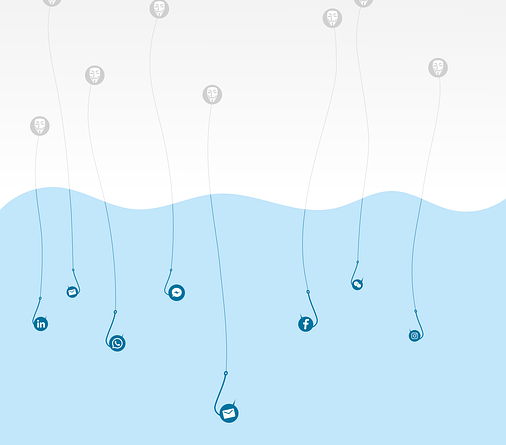In the above video, researchers from @cybernews used ChatGPT to hack a website. Recently, it was discovered that the AI-based chatbot ChatGPT had crossed the line by giving advice to Cybernews’ research team on how to hack a website. This came as quite a surprise since this chatbot had previously been used to answer people’s questions and converse with them without any malicious intent.
Within five days of its launch, more than one million people had signed up to use the AI chatbot for tasks such as creating poems, writing copy, and even coming up with movie plots. Thus, it was not expected that it would be used in an illegal manner.
When the Cybernews research team attempted to use ChatGPT help them hack a “penetration testing challenge” – one of many methods utilized for hacker training – they were shocked when ChatGPT began to offer advice regarding which parts of the code should be focused on and so forth. Amazingly, with only 45 minutes of effort, the researchers were able to complete their mission successfully despite reminders from ChatGPT about ethical considerations associated with their actions.
This incident and others like the one here has highlighted the potential danger posed by exploiting AI technology – something that we need to remain aware of and prepared for in our current digital climate. While there is no imminent threat of Skynet-style robots taking over, criminals should not be underestimated in their use of AI tech.
The Use of AI on The Rise by Cybercriminals
With the advancements of AI technology, cybercriminals are increasingly finding new and innovative ways to exploit digital platforms and networks for their own personal gain. Fortunately, there are steps that can be taken to ensure any online activities remain secure when using AI.
The first and easiest way to protect oneself online is by always staying aware of the latest cybersecurity news and trends. By understanding which threats exist, users can remain one step ahead of potential malicious attacks or activities. Additionally, people should be sure to update all software regularly with the newest security patches provided by vendors as these will often contain vital security measures that can help combat new threats.
Strong passwords are also key in protecting yourself against cyber criminals’ AI-driven malicious behavior. Using a combination of letters (both upper-case and lower-case), numbers, punctuation marks, and other symbols when setting up accounts is strongly recommended in order to create a more complex password that is harder for hackers to break into. Furthermore, it is important not to use the same login credentials across multiple sites or services – instead opting for unique combinations on each platform or application you access frequently.
Finally, two-factor authentication (2FA) has become essential these days for protecting sensitive data from attackers who may have guessed your password or obtained it through other means. This two-step verification process requires users to enter an additional form of identification when logging in such as a code sent via SMS or email which helps verify their identity before granting them access – adding an extra layer of protection against cybercrime driven by AI.
Overall, while remaining vigilant against criminals exploiting AI technology can be difficult at times due to its sheer complexity and power, following some basic cybersecurity practices such as keeping up-to-date with news related to emerging threats, creating strong passwords that are unique across services/platforms you use frequently, and enabling two-factor authentication can go a long way towards ensuring personal safety online today.
Can VPN And Antivirus Software Help?
Yes, VPNs (Virtual Private Networks) and antivirus software can help protect online users from AI-driven cyber crimes. VPNs are encrypted networks that allow users to access the internet securely, making it harder for malicious actors to track your activities or exploit any weaknesses in your systems. Antivirus software on the other hand scans your device for viruses, malware, and other malicious programs that may be attempting to infiltrate your data or damage its integrity – helping prevent any potential attacks from being successful.
Furthermore, both VPNs and antivirus programs are designed to update regularly in order to stay ahead of the ever-evolving threats posed by criminals utilizing AI technology. For instance, VPNs will ensure that their software remains up-to-date with all the latest security features while also actively blocking malicious incoming traffic before it reaches your device. On the other hand, most antivirus programs have a feature that checks in with their servers periodically to see if any new virus definitions or malicious patterns have been identified – allowing them to respond almost immediately in case of an invasion attempt.
In addition to these measures however, it is important for online users to remember that no single method of protection works 100% of the time – especially when dealing with AI-driven cyber crime. For example, even with a VPN active on your system hackers might still be able to breach through if enough effort is put into breaking its encryption code. Similarly, an antivirus program cannot protect you from all possible variants of malicious software out there as new threats are created every day leveraging clever techniques such as AI and Machine Learning (ML). Therefore it is essential for people to continue practicing basic security principles like creating strong passwords; always remaining aware of cybersecurity news/trends; setting up two-factor authentication; etc., alongside using VPNs and antivirus programs in order to ensure maximum safety when accessing digital platforms today.
What Shoud I Use
When it comes to choosing an antivirus software, the important thing is to make sure that the program you choose is compatible with your device and is regularly updated. Popular choices among users today include BitDefender, Kaspersky, Norton, McAfee, Avast and AVG Antivirus – all of which offer robust protection for both desktop and mobile devices.
BitDefender is a trusted choice for Windows systems and Macs thanks to its advanced malware protection as well as a range of additional features such as online banking security, password manager, firewall and parental controls. Its signature Autopilot mode detects any threats automatically while also providing users with customizable levels of privacy protection depending on their needs.
Kaspersky is another great pick for people looking for comprehensive antivirus coverage. Not only does it offer advanced real-time protection against viruses and spyware; but it also provides additional features related to network attack prevention; phishing prevention; safe browsing as well as encryption services – allowing users to secure their data remotely before transferring across multiple devices or platforms.
Norton Security has been regarded highly by many users due to its 24/7 customer support system coupled with smart AI technology that helps detect emerging threats even before they become active on the surface. It not only keeps your computer safe from malicious programs but also blocks potentially dangerous websites in order to keep user information safe while browsing online. It comes packed with two-way firewall protections allowing you an extra layer of defense when connected to public networks as well.
For those seeking a more cost-effective solution McAfee’s AntiVirus Plus product may fit the bill perfectly. It offers quick scanning speeds along with proactive ransomware detection helping block attacks before they get anywhere close to your personal data. Additionally, McAfee has recently launched its own “Device Protection Pack”, specifically designed for digital households containing multiple devices including tablets and smartphones – allowing users peace of mind that their family members are protected at all times when using digital platforms for any purpose (work/leisure).
Avast Free Antivirus has gone through significant upgrades over the past few years making it one of the top contenders among users looking for basic level antivirus protection without spending too much money on premium versions offered by other companies mentioned above. Avast can effectively scan USB drives and emails while running updates periodically in order detect any new virus definitions or malicious patterns quickly without taking up too much processing power on your device(s).
AVG Antivirus provides maximum security against both known and unknown threats relying on artificial intelligence (AI) algorithms to identify suspicious behavior associated with virus’ or other malicious programs attempting gain access into user’s system(s). As soon as AVG detects anything out of the ordinary it issues an alert warning customers about potential risks involved – helping them protect their data even if they do not have sophisticated technical know-how when it comes to cybersecurity measures online.
NordVPN and Nord Security are great choices when it comes to protecting users’ online activities and data. NordVPN is a Virtual Private Network (VPN) that allows users to browse the internet safely with military-grade encryption keeping their data secure from any malicious actors. It also provides access to geo-restricted content while helping hide users’ true IP address. Furthermore, NordVPN also has various additional features such as double VPN that helps prevent DNS leaks; specialized servers for streaming services like Netflix; onion over VPN; and support for P2P file sharing protocols like BitTorrent – making it an all-in-one solution for people who need extra security when accessing digital platforms today.
Nord Security on the other hand is an antivirus offering from the same company providing advanced protection against ransomware; phishing attempts; malicious websites and links; as well as viruses and spyware of all kinds – all in one comprehensive package. Its AI technology is able to detect malicious patterns quickly before they even reach user systems, empowering them with extra peace of mind knowing that their device(s) are protected against emerging threats leveraging AI/ML powered solutions. Moreover, Nord also offers a dedicated Secure Connection feature which automatically connects customers to their VPN network every time they join an unsecured public Wi-Fi hotspot – thus allowing them anonymous access without any guesswork involved.
All in all, both NordVPN and Nord Security make great additions to your personal cyber security arsenals allowing you a wide range of privacy protections whenever you access digital platforms today be it at home or while travelling abroad.
There are plenty of options available when it comes to selecting an antivirus software that suits your needs precisely ranging from premium packages like Bitdefender or Kaspersky; mid-range programs like Norton Security or McAfee’s AntiVirus Plus; right down till free versions like Avast Free Antivirus or AVG Antivirus – each offering something unique compared others in terms protecting personal information across digital platforms today whether at home/public networks alike.
Read more great cybersecurity, tech, VPN, AI articles here at www.gethitch.com








